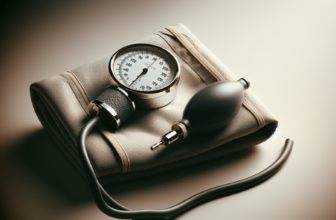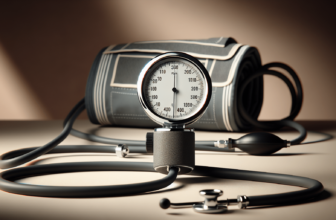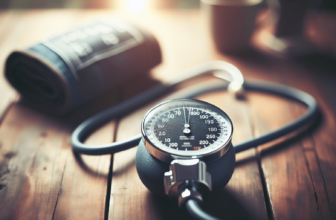
Stay alert! Here are 15 signs of high blood sugar that you shouldn’t overlook. Keeping an eye on these can help you stay on top of your health.
Frequent Thirst

Always feeling thirsty? This might mean your blood sugar levels are too high. If you’re constantly reaching for water, it’s a good idea to check your glucose levels to make sure everything is okay.
Constant thirst can be a sign of high blood sugar, which is often linked to diabetes. Noticing this symptom early and checking your glucose can help you manage your health better and catch any issues sooner.
Feeling thirsty all the time isn’t something to ignore. It could be your body’s way of telling you that your blood sugar is up. Regularly checking your glucose levels can help you stay on top of your health and avoid complications.
Increased Urination

If you find yourself going to the bathroom more often than usual, it might be due to high blood sugar levels. This can be a sign that your body is trying to get rid of excess glucose through your urine.
Another reason for frequent urination could be drinking a lot of fluids, especially those containing caffeine or alcohol. These substances can act as diuretics, making you need to pee more often.
It’s important to pay attention to increased urination, especially if it’s accompanied by other symptoms like extreme thirst, fatigue, or unexpected weight loss. These could be signs of a more serious issue, so it’s best to talk to your doctor if the problem continues.
Fatigue

Feeling tired even after sleeping well? High blood sugar levels can leave you feeling drained. Keep an eye on how energetic you feel and see a doctor if this continues.
High blood sugar can make you feel unusually tired. If you notice this happening, it’s important to check your blood sugar levels and talk to a healthcare provider.
If you’re always feeling worn out despite getting enough rest, it might be due to high blood sugar. Monitoring your energy and consulting with a doctor can help manage this.
Blurred Vision

Noticing your vision getting fuzzy? This could be a sign of high blood sugar. Don’t overlook changes in how you see things; it’s important to check your blood sugar levels as soon as possible.
High blood sugar can lead to fluid changes in the eye, making your vision blurry. Regular eye check-ups and monitoring your blood sugar levels can help keep your vision clear and healthy.
If your vision suddenly becomes blurry, it might be due to high blood sugar affecting the lenses of your eyes. Keeping your blood sugar in check can prevent these sudden changes and protect your eyesight.
Headaches

Frequent headaches can signal high blood sugar levels. If you notice you’re getting headaches more often, it might be a good idea to check your glucose levels. Addressing this early can help manage your overall health better.
High blood sugar can cause dehydration, leading to headaches. Staying hydrated and monitoring your blood sugar levels can help reduce the frequency of these headaches. Simple lifestyle changes can make a big difference in your well-being.
If you have diabetes and experience regular headaches, it’s essential to keep track of your blood sugar levels. Consistently high glucose can be harmful, but managing your diet and medication can help keep your symptoms under control.
Slow Healing Wounds

If your cuts and bruises are taking longer to heal, it might be due to high blood sugar. This condition can hinder the body’s ability to repair itself quickly. Keep an eye on your healing process and talk to a doctor if you notice any delays.
High blood sugar levels can damage nerves and blood vessels, reducing blood flow to affected areas. This slows the delivery of essential nutrients needed for healing. If you experience this, consider consulting with a healthcare professional for advice and management.
When blood sugar is high, it can weaken your immune system, making it harder for your body to fight off infections. Slow healing wounds can become a serious issue if left untreated. Always monitor your healing and seek medical advice when necessary.
Unexplained Weight Loss

Unexpected weight loss can be a sign of high blood sugar. When your body can’t get energy from glucose, it starts burning fat and muscle instead, leading to weight loss. It’s important to check your blood sugar levels if this happens.
If you’re losing weight without trying, it might be due to your body’s inability to use glucose properly. This can cause your body to break down other tissues for energy. Monitoring your blood sugar can help identify if this is the cause.
High blood sugar can lead to sudden weight loss because your body starts to use fat and muscle for energy. This can be a sign of diabetes or other health issues. Getting your blood sugar tested can provide important information about your health.
Hunger Pangs

Feeling hungry all the time? High blood sugar might be the reason. When your glucose levels are off, your body thinks it needs more energy, making you feel hungry even after eating.
If you notice you’re always craving food, it might be time to check your blood sugar levels. Consistently high glucose can trick your brain into thinking you’re still hungry.
Managing your blood sugar can help you control constant hunger. Simple lifestyle changes, like eating balanced meals and staying active, can make a big difference in how often you feel hungry.
Dry Mouth

Having a dry mouth can be a sign that your blood sugar levels are too high. If you find that drinking water doesn’t help, it might be a good idea to check your blood sugar.
A dry mouth not only feels uncomfortable, but it can also lead to other issues like bad breath or gum problems. Keeping an eye on your blood sugar can help prevent these complications.
Sometimes, medications or certain health conditions can cause dry mouth. However, if you also have other symptoms like increased thirst or frequent urination, it could be related to high blood sugar.
Skin Problems

High blood sugar can lead to frequent skin issues like itchiness, dryness, or infections. It’s important to monitor your skin health and address any problems early. Don’t hesitate to see a doctor if you notice persistent issues.
Skin problems can be a sign of high blood sugar. Conditions like fungal infections, bacterial infections, and itchy skin are common. Keeping your blood sugar levels stable can help prevent these issues.
Taking care of your skin involves more than just moisturizing. Regularly check your skin for any unusual changes or infections, especially if you have high blood sugar. Early detection and treatment can make a big difference.
Numbness

Feeling numbness or tingling in your hands or feet? This could be a sign of high blood sugar affecting your nerves. Don’t ignore it; getting checked out is important to avoid more serious issues.
High blood sugar can damage your nerves over time, leading to feelings of numbness or tingling in your extremities. Early detection and management are key to preventing further complications.
Ignoring symptoms like numbness or tingling can lead to more severe nerve damage. Regular check-ups and maintaining healthy blood sugar levels can help protect your nerve health.
Mood Swings

High blood sugar can really affect how you feel, making you more irritable or causing mood swings. If you’re feeling unusually cranky, it might be a good idea to check your blood sugar levels to see if they’re higher than normal.
Sometimes, managing blood sugar levels can be tough, but it’s important. When your blood sugar is too high, it can mess with your emotions, leading to unexpected mood changes. Keeping track of your levels can help you understand and control these swings.
It’s not just physical symptoms that come with high blood sugar; your mood can take a hit too. Feeling more irritable or having sudden mood changes might be a sign that your blood sugar is off. Checking it regularly can help you stay on top of your emotional well-being.
Frequent Infections

If you find yourself getting sick more often, it could be due to high blood sugar. This condition can weaken your immune system, making it harder for your body to fight off infections. It’s important to talk to your doctor if you notice this happening.
When your blood sugar levels are consistently high, your body becomes less effective at defending against germs. This can lead to more frequent illnesses, including colds, urinary tract infections, and skin infections. Monitoring and managing your blood sugar is crucial for maintaining a strong immune system.
High blood sugar doesn’t just make you more prone to infections; it can also make these infections harder to treat. The longer your blood sugar remains uncontrolled, the more difficult it becomes for your body to recover. Regular check-ups and proper management of blood sugar levels are essential.
Dark Skin Patches

Dark patches on your skin, especially around the neck or armpits, might mean your blood sugar is high. It’s good to keep an eye on any changes in your skin and talk to a doctor if you see this symptom.
These dark skin patches can also be a sign of a condition called acanthosis nigricans, which is linked to insulin resistance. This means your body might be having trouble using insulin properly, so it’s important to get it checked out.
Sometimes, dark skin patches can appear even if you don’t have diabetes. They can be caused by other health issues like hormone disorders or obesity. If you notice these patches, it’s best to see a doctor for a proper diagnosis.
Dizziness

Feeling dizzy or lightheaded can be a sign of high blood sugar levels. If it happens frequently, it’s a good idea to check your blood sugar. Keeping track of your symptoms can help manage and understand your condition better.
Dizziness might also be caused by dehydration, which is common in people with high blood sugar. Make sure to drink plenty of water throughout the day to stay hydrated and potentially reduce the chances of feeling dizzy.
If you find yourself feeling dizzy often, it could be helpful to monitor your diet and exercise routines. Eating balanced meals and staying active can help maintain stable blood sugar levels, which might lessen the episodes of dizziness.
Conclusion
Recognizing the signs of high blood sugar early can make a big difference in managing your health. If you notice any of these symptoms, it’s important to talk to your healthcare provider. Staying informed and proactive can help you maintain a balanced and healthy life.







